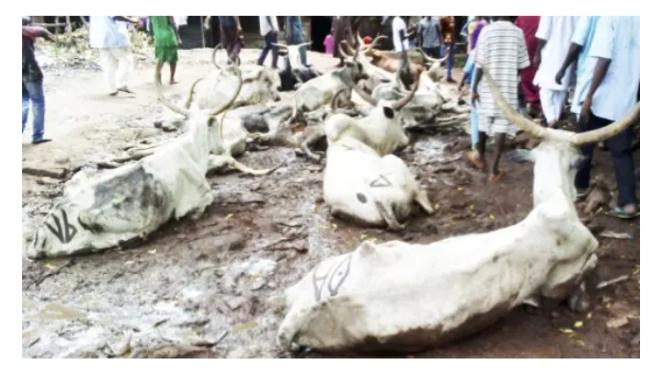Abia Cattle Market Turned Kidnappers’ Hideout: A transformation from slaughterhouse to human abattoir
The Lokpanta – Umunneochi axis has gained notoriety due to the prevalence of criminal activities, turning it into Abia’s infamous ‘Gaza Strip.’
For years, this region has been plagued by kidnappings and other nefarious acts, making life unbearable for residents and travelers along the Enugu/Port Harcourt Expressway.
Kidnappings for ransom and heinous crimes have become a grim routine, turning the journey to Lokpanta and neighbouring communities into a dangerous venture.
Even the former Prelate of the Methodist Church of Nigeria, Dr. Uche Kanu, fell victim to abduction, with a hefty ransom of N100 million demanded for his release.
Various attempts have been made to combat this surge in criminality.
In the past, committees were set up, and security measures were implemented, including banning certain activities and deploying additional checkpoints. Unfortunately, these efforts failed to yield positive results.
The Okezie Ikpeazu administration introduced Operation Crush, a joint task force involving the Police, Army, Navy, DSS, and NSCDC, aimed at swiftly addressing security threats across the state, especially in the Umunneochi corridor.
Governor Alex Otti’s administration intensified efforts, raiding the Umuchieze (Lokpanta) Cattle Market, revealing startling findings.
READ ALSO: Bandit kingpin Dogo Gide injured as troops kill 3 terrorists, destroy hideouts
Security agents uncovered 50 decomposing bodies, over 20 skulls, and numerous human skeletons, unveiling a hub for kidnapping, prostitution, drug trade, and other criminal activities.
In response, the government took decisive measures, transforming the cattle market into a daily market open from 6 am to 6 pm, allotting sections for various businesses to increase security and installing fencing at a substantial cost to ensure safety.
However, the cattle dealers vehemently denied the government’s claims of decomposed bodies within the market, alleging the government’s intention to smear their reputation and force them out of the area.
The traders emphasized their integration within the community and their challenges if relocated.
They pleaded with the government to reconsider making the market non-residential, citing the impracticality of relocating and caring for the cattle if ousted from their long-established space.
While the government’s decision aimed to tackle criminal activities, the host community, without official representation, expressed support for the efforts to curb insecurity.
They highlighted the need for their involvement from the market’s inception to collaboratively address issues arising from the herders’ activities.
The situation in Umunneochi remains a complex dilemma, where the government’s stringent security measures clash with the livelihoods of cattle dealers and the desires of the host community for a lasting and peaceful resolution to the area’s security challenges.
Follow the Neptune Prime channel on WhatsApp: https://whatsapp.com/channel/0029Va74ZvU2v1IqKByXoX3d
Do you have breaking news, interview request, opinion, suggestion, or want your event covered? Email us at neptuneprime2233@gmail.com


